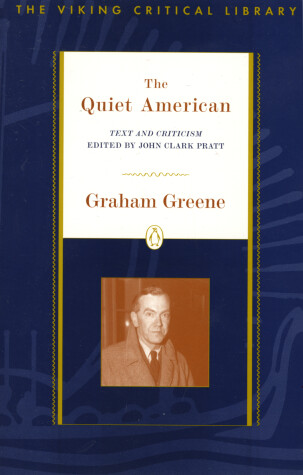Reviewed by brokentune on
The Quiet American is Greene's exploration of relationships and politics against the backdrop of the conflict in Vietnam in the early 1950s.
Thinking about it, this is really an amazing book and shows Greene's ability to observe current affairs - and look behind smokescreens. The "amazing" aspect of the book is that it was published in 1955, a decade before the conflict in Vietnam would become so prominent in the social and political agendas of not only the US but many other western countries.
Greene's novel tells the story of three characters - each a symbol for a distinct interest group - a Vietnamese woman torn between a cynical Brit and a "quiet" American. "Quiet" because Greene contrasts him to a brash compatriot, another CIA agent whose task is to undermine the Communist "renegades".
Without going into the story and revealing too much, this is a tense but slow read with one of the best endings of a Greene novel that reflects on the futility of political martyrdom and sacrifices made for the greater good.
‘Yes. They killed him because he was too innocent to live. He was young and ignorant and silly and he got involved. He had no more of a notion than any of you what the whole affair’s about, and you gave him money and York Harding’s books on the East and said, “Go ahead. Win the East for Democracy.” He never saw anything he hadn’t heard in a lecture-hall, and his writers and his lecturers made a fool of him. When he saw a dead body he couldn’t even see the wounds. A Red menace, a soldier of democracy.’
Reading updates
- Started reading
- 2 August, 2015: Finished reading
- 2 August, 2015: Reviewed
